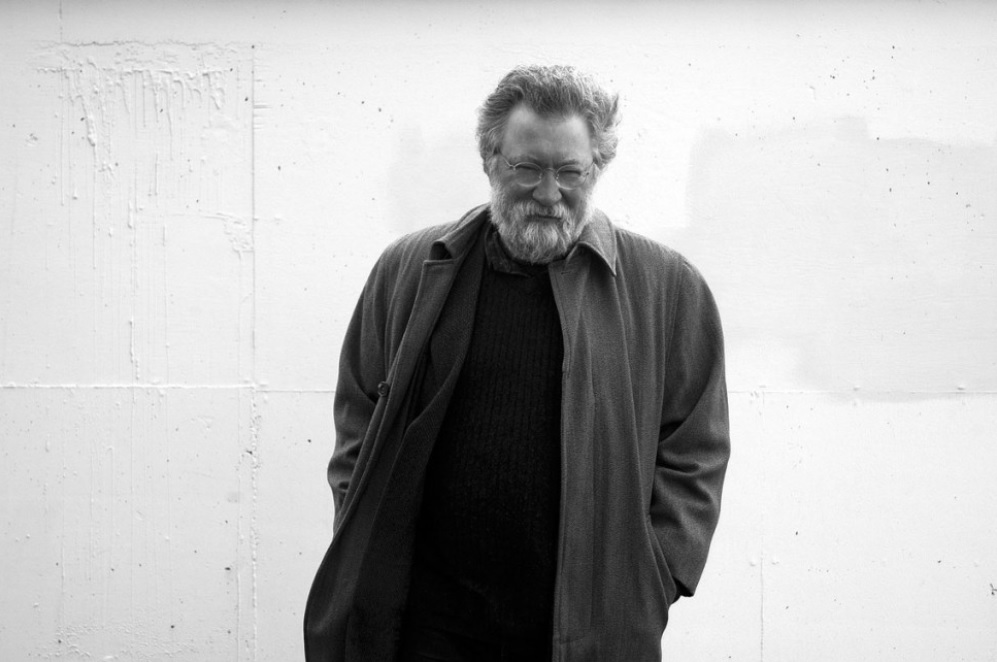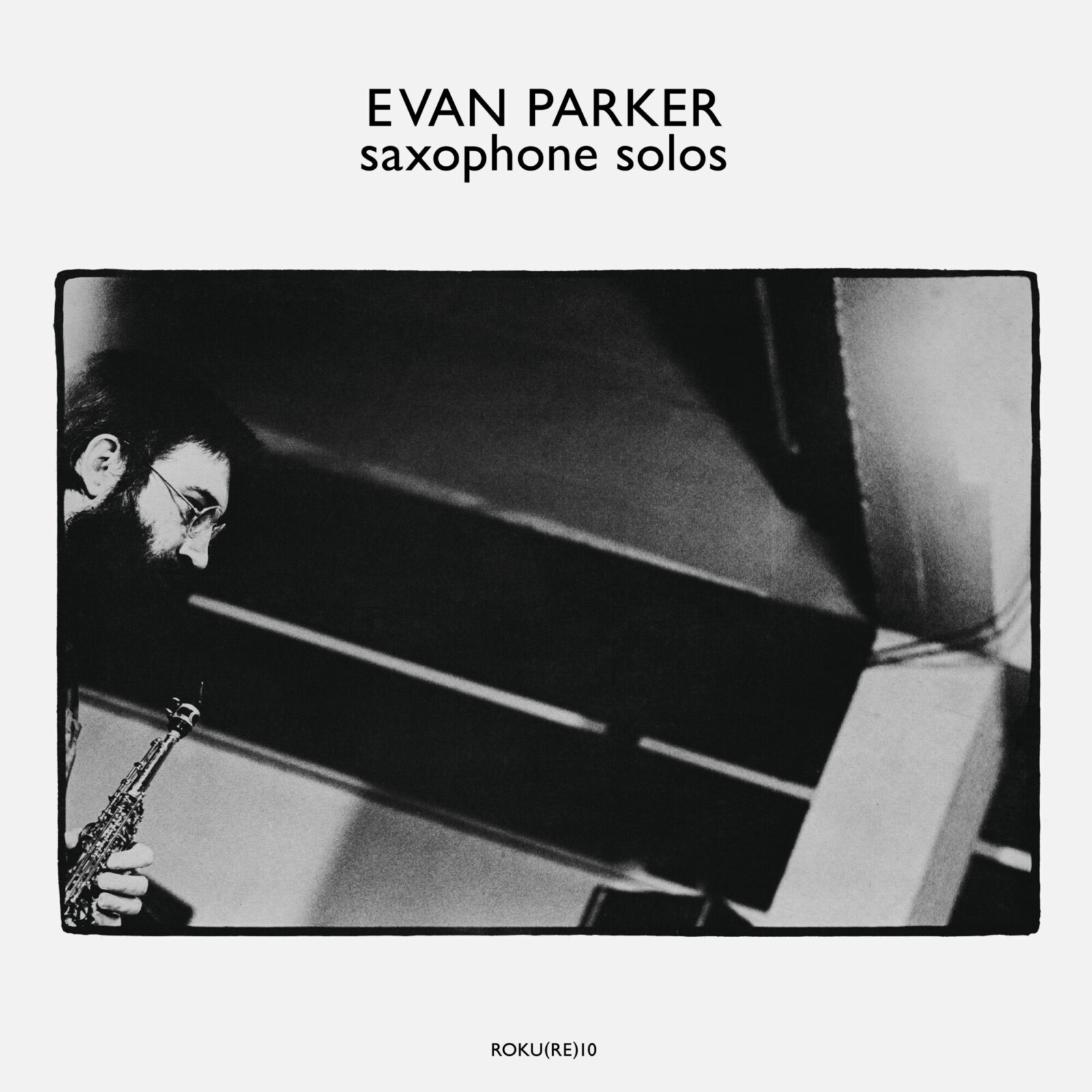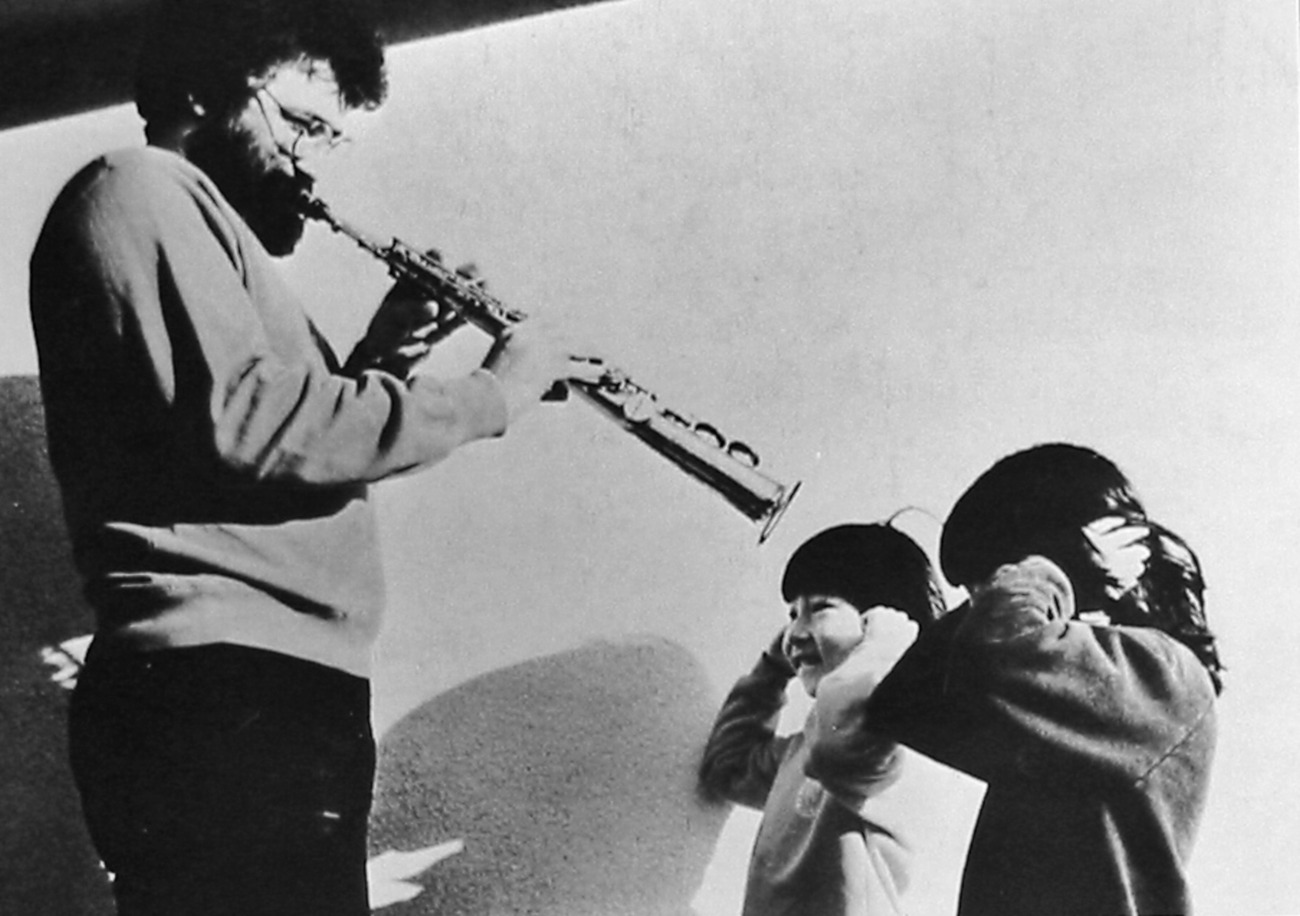Evan Parker
Early next year, OTOROKU will reissue Evan Parker’s first solo LP ‘Saxophone Solos’.
“More than one mind”
If you listen to ‘Saxophone Solos’ yourself, which was originally recorded in 1975 and released in 1976, what do you hear? What do you think? What do you feel?
Evan Parker: I haven’t listened to it for a while. I know that it covers a lot of approaches and specific techniques which I no longer use.
Do you think a musician is the best critic of its own work?
The player should always listen critically and this is usually involuntary. In solo playing it is easy to reject recordings which do not reach a certain standard. With group recordings the feelings of the other players must be taken into consideration.

Do you remember what your motivation was to make ‘Saxophone Solos’ at the time? Were there certain ideas you wanted to work out? Certain things you wanted to try out?
I had a more or less theoretical objection to the “idea” of solo recordings for the first couple of years after I started to make records.
This was something connected to the idea that improvisation needed to involve more than one mind if it was to maintain a different character from “composition”. Once I realised that the dialogue could then be with the instrument instead of with other players, I changed my mind.
How do you remember the recording of ‘Saxophone Solos’ with Jost Gebers and Martin Davidson at Unity Theatre?
I have rather generalised memories of the Unity Theatre which are not specific to the solo recording. I know that this concert was my first attempt to give a solo performance. I had not taken into account the extra effort involved, both mental and physical, and as a consequence did not play long enough for an LP. I needed to record more to make the second side long enough. The Berlin studio was Jost Geber’s first attempt at building a studio before he set up the more professional set up in the Behaimstrasse. It was pretty basic but he had good mics and a good recorder.

There’s also a tape release version of ‘Saxophone Solos’ with recordings made at the FMP studio in Berlin. So why did you chose to only use the London recordings for the LP version and not the Berlin ones?
The tape was included in a limited-edition boxed set of a collection of the LPs I had made for Incus. It was an expedient way of packaging the various records which I took with me when I left Incus. When I reissued the CD version on my label psi I was able to add all but one of the pieces on that tape. I was anxious that the boxed-set would retain its uniqueness so there is one very short track which is not on the psi CD. OTOROKU are preparing a second edition of the boxed set complete with cassette tape. Their LP version of ‘Saxophone Solos’ is a reissue of the original Incus LP and the side lengths do not leave space for any more music without compromising the mastering level.
Why are the tracks on ‘Saxophone Solos’ called ‘aerobatics’?
What’s in a name? It has a quality which either speaks to the listener or not. It is a poetic conceit.
The credits of ‘Saxophone Solos’ says ‘written by Evan Parker’ but the liner notes say ‘aerobatics are improvisations’. So; is the music on ‘Saxophone Solos’ written or improvised?
For the royalty collection agencies, the works are “written”. They were “written” by being improvised. Once they are recorded, they have a fixed form which can be registered. Every now and again I get some royalties when things are played on the radio.
Why did you want to make a solo saxophone recording in the first place?
My playing and understanding of the instrument as a dialogic counterpart, which I have already touched on, arrived at a point where it seemed like a necessary next step.
“The solo records tell their own story.”
Which role does your solo work take in your discography?
The solo records tell their own story. I still find it an interesting challenge to try to find new stuff.
Do you feel like, when you pick up a saxophone, that you carry the history of the instrument with you?
I certainly want to carry my own history with me. I would like to think that the recordings outline a coherent and therefore comprehensible body of work.
Is it the role of an artist to add something to that history or react against it?
This question would need me to write a book to even start to say anything useful.
‘Saxophone Solos’ has been re-released before, so why this re-release?
The revival of the LP has been a strange time for me to experience. In the earliest days of Incus we were fortunate that the first pressings of the first two records were made by Decca Classical manufacturing facility. Then came a chequered and sometimes frustrating period where the vinyl crisis of the mid-seventies became an excuse for some very shoddy work to be considered “commercially acceptable”. Then we had a second golden period when independent classical company Nimbus mastered and pressed LPs for us. When Nimbus switched to making CDs we followed as soon as we could afford to. CDs were very expensive to manufacture in the initial phase. Now the LP is back in demand and thank God the standards of manufacture are high. OTOROKU take their work very seriously and I am pleased to see that LP versions are available for those listeners who feel that LPs are better to listen to.

The re-issue on OTOROKU is, as you said, a vinyl release. Does a release on vinyl feel closer to the original Incus release than the releases on CD from 1994 and 2009?
I am happy to leave quality control to OTOROKU. Their standards are high. Evan Parker
Joeri Bruyninckx
Evan Parker Official Website
Cafe Oto Official Website



